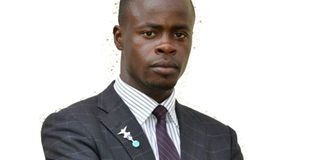Democracy deficit in Great Lakes region a hindrance to development

Robert Nestrooy Kayongo
What you need to know:
- Develop fast. The region can surely expect to achieve much and develop fast if only people’s rights could be guaranteed. Targeting journalists, activists and political opponents is not the right way to go. Maintaining tight grips on power can only bring chaos and frustration among the people.
The statement “Silent majority” has become so famous in Uganda of late with one side alluding that the ‘minority’ are just mere noise makers. I have, however, seen all people claiming to belong to the majority end which leaves one wondering who exactly belongs where? This confusion is not peculiar to Uganda. It is a disease that has slowly, but surely simmered throughout the Great Lakes region and probably the entire continent of Africa. A critical analysis of matters will portion this confusion to those in power today.
Across the Great Lakes region, those in power have tried to maintain a façade of democracy – organising elections or something close to it while trampling on the basic rights and freedoms that are fundamental to any real democracy with impunity. This Africa’s richest region in natural resources hosts some of the most undemocratic governments on the continent.
Power has become a real mafia jungle with only certain individuals from the usual suspects want to be on the frontline. Those in power have patronised indigenous citizens into thinking that they are the only ones with the right to rule and that there is no room for defeat.
In Uganda, if you ask Dr Kizza Besigye, he will tell you the high price he has had to pay from the day he decided to challenge his former boss and patient, President Museveni. Dr Besigye has probably hadcuffs on his hands much more times than he has ever had his peace.
President Museveni has been in power for more than three decades (from 1986 to date) and still counting. In fact, he has seen amendment of the 1995 Constitution many times.
But President Museveni is not the only leader in the region who had the Constitution changed. Rwanda’s Paul Kagame, who has been in power since 2000, has already secured his position after the constitutional amendment in 2015, which extended the presidential term limit. The amended Constitution now allows him to stay in power until 2034. Opposition figures in Rwanda have reportedly been arrests while others have gone into exile. President Kagame’s critics and the international communities say there is lack of inclusiveness in the country.
Media, the civil society and human rights organisations reports accuse Gen Kagame of stifling freedom of expression. This is in spite of the fact that Gen Kagame is widely praised for his efforts in transforming Rwanda’s economy. He has also ensured that Rwanda one of the least corrupt countries in sub-Saharan Africa.
Tanzania is another country in the region with a shaky democratic credential. While there has been what many people see as peaceful transfer of power in the country, that is not all the story. Opposition parties, political activists and media outlets that are critical of the the ruling party, Chama cha Mapinduzi (CCM) (Revolutionary Party), are not free to operate as the country still seems to suffer from the hangover of a single party rule. Tanzania is still largely a one party-state. Politics is still dominated by the one-party generation, most of them in their late 60s. Political leadership in both the ruling and Opposition parties is still in grip of the old guards with the ‘dot.com generation’ waiting in the wings.
Former DR Congo president Joseph Kabila stayed in power despite nationwide outcry for him to let the country take a democratic path.
After the controversially election in DR Congo last year, Mr Kabila made a coalition with newly elected president Felix Tshesekedi to work together in order to stabilise the country.
In 2015, Burundi’s Pierre Nkurunziza defied public call for him to step down. The election, which was boycotted by many other political parties, went ahead on July 21, 2015. The electoral commission announced that Mr Nkurunziza had won the poll with 69.41 per cent. He was sworn in on August 20, 2015. More than 500 Burundian protesters were arrested and nearly 250 of them are facing prosecution. The 54-year-old Nkurunziza is currently serving his forced third term as president of Burundi. He amended the country’s Constitution, which now allows him to stay in power until 2034.
This undemocratic system of governance is commonly practiced in nearly all countries in the region. We all remember what happened in Kenya in 2006 and in 2017 when thousands of its citizens lost their lives following a controversial declaration of presidential election results.
The region’s discovery of oil and gas has attracted a number of mega infrastructural projects. These include DRC’s Grand Inga Hydroelectric Plant, a multi-billion-dollar project expected to be the biggest hydropower producer in the world upon its completion. There is also the East Africa’s Standard Gauge Railway project which, if there was to be democracy, has the potential to greatly change the image of the region.
The region can surely expect to achieve much and develop fast if only people’s rights could be guaranteed. Targeting journalists, activists and political opponents is not the right way to go. Maintaining tight grips on power can only bring chaos and frustration among the people.
Mr Kayongo is a political journalist.
[email protected]




